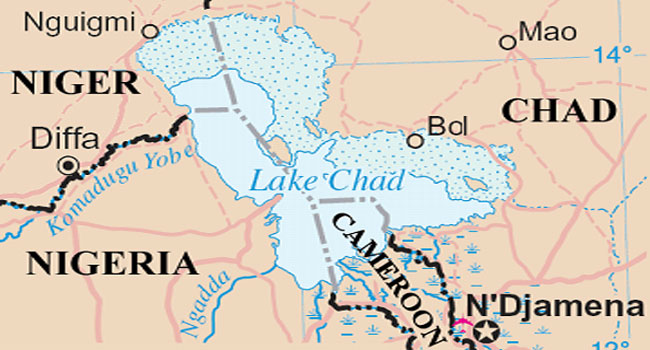
Clashes between members of the Islamic State West Africa Province (ISWAP) and Boko Haram have claimed nearly 200 lives in the restive Lake Chad area, intelligence, militia, and jihadist sources told AFP Monday.
Fighting between Boko Haram and rival militants from the Islamic State West Africa Province (ISWAP) group broke out in Dogon Chiku on the shores of Lake Chad on Sunday, in the latest bout of infighting for territorial control fuelled by ideological rifts.
READ ALSO: ISWAP Terrorists, Bandits Killed As NAF Raids Hideouts In Borno, Others
“From the toll we got, around 200 ISWAP terrorists were killed in the fight,” Babakura Kolo, a member of an anti-jihadist militia assisting the Nigerian military, told AFP.
A former Boko Haram jihadist, who has since renounced violence but follows jihadist activities in the region, also said “around 200 ISWAP fighters were killed in the clashes”, with several of their weapons seized.
Boko Haram lost four fighters in the battle, according to the former militant, who asked to be identified only by his first name, Saddiku.
“This could be the worst clash between the two groups since they began attacking each other,” said Saddiku, who lives in Maiduguri, the capital of Borno state, the epicentre of the insurgency.
Short video clips seen by AFP appear to show several dead bodies in canoes, with some of the vessels flooded with bloody water.
A Nigerian intelligence source working in the region said they were following the aftermath of the clashes, estimating that they “killed more than 150”.
“We are aware of the fighting, which is good news to us,” the intelligence source said.
Although the defence headquarters has yet to comment on the incident, the Nigerian Air Force said in a statement on Monday that several members of ISWAP were killed during intensified counterterrorism and counter-banditry operations nationwide.
But it did not disclose the number of terrorists or bandits killed in the operation.
Deadly Struggle For Control
ISWAP and Boko Haram have been locked in a deadly struggle for territorial control since their split in 2016 over ideological differences, with much of the fighting taking place around Lake Chad.
The freshwater lake, which straddles Nigeria, Niger, Cameroon, and Chad, serves as a sanctuary for both Boko Haram and ISWAP, from which both launch attacks across the four countries.
2016 Splinter
ISWAP, which claims allegiance to the Islamic State group, has risen to prominence since breaking off from Boko Haram in 2016.
Both factions have fought for dominance since, leading to the death of Boko Haram leader Abubakar Shekau during clashes in his Sambisa forest hideout in May 2021.
Some Boko Haram fighters joined ISWAP to avoid execution, others surrendered to Nigerian troops while the rest fled to islands on the Niger side of Lake Chad under the control of Shekau’s successor, Bakura Buduma.
In one of the largest flare-ups, a September 2021 raid by Boko Haram on the ISWAP-controlled Kirta-Wulgo island led to weeks of back-and-forth fighting between the two militias.
Boko Haram has since succeeded in pushing ISWAP out of most of Lake Chad, which the two groups covet as a refuge from military attacks and a huge source of revenue from fishing, farming, herding, and logging.
Nigeria’s jihadist conflict has killed more than 40,000 people and displaced around two million people in the predominantly Muslim northeast since it erupted in 2009.
The violence has spilt into neighbouring Niger, Chad, and Cameroon, prompting the creation of a regional military force to fight the jihadists.
US President Donald Trump had threatened military intervention in Nigeria, Africa’s most populous nation, over what he calls the “killing of Christians” by radical Islamists.
Source: Channels TV

Leave a Reply